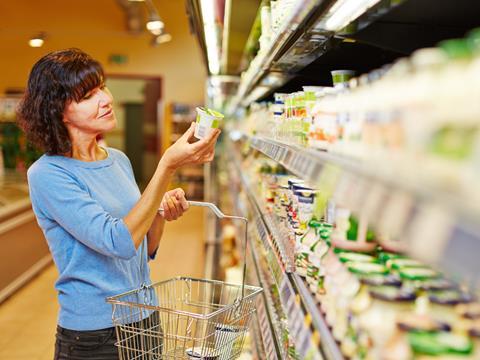
As the Retail Forum for Sustainability and the Retail Environmental Action Programme (REAP) celebrate their 10-year anniversary, we spoke to EuroCommerce to learn about their main achievements and possible future directions.
To give some background: the European Commission launched its Sustainable Consumption and Production Action Plan in 2009, in recognition of the important role of retailers in influencing sustainable consumption patterns. This led to the establishment of the Retailers’ Environmental Action Plan, a voluntary joint project between EuroCommerce and ERRT, co-chaired by retailers and the European Commission. Its aim was to reduce environmental impacts in the retail sector and its supply chain, promote more sustainable products and provide better information to consumers.
“The Forum highlights examples of best practice of front-runners,” said a EuroCommerce spokesperson, “but there is still a lot to be done, particularly in equipping SMEs, who make up the bulk of our sector to follow the same paths.
“Over the years, the REAP signatories have raised the bar towards higher sustainability criteria in a broad range of products. The commitments dealt with 3 priority actions: 1) what we sell 2) how we sell 3) communication.”
According to the spokesperson, the first commitments under the REAP focused mainly on improving the efficiency of processes and stores. Current zero-carbon commitments by a number of retailers including ‘major efforts’ to reduce energy consumption at stores. Over the past decade, the Retail Forum Action Plan and other sustainable initiatives have expanded to cover new types of products and provide more information to consumers.
EuroCommerce says that the Retail Forum is an “excellent example of business leadership working successfully across a range of important initiatives. It has delivered on two very tangible points: 1) the Forum has set up a platform enabling all the players along the supply chain to talk to each other on a regular basis: simple but very effective; 2) it has created a framework for different actors along the supply chain to share best practice. Such sharing allows each player to understand the challenges faced by his counterparts, so paving the way to cooperation and to progress.”
Each year since its establishment, a monitoring report has assessed and summarized the achievements of the project. These are available on the Commission DG ENVIRONMENT website (commitments and reports).
There are of course specific environmental challenges relating to packaging and the retail sector. We asked what these are, and how retailers can make a positive impact on sustainable consumption patterns in this regard in order to contribute to a circular economy.
“Packaging fits specific purposes in terms of conditioning, marketing, transport, protection and information to consumers. Retailers and wholesalers have reduced or removed unnecessary packaging, promoting loose product displays, developed innovative ways of labelling such as laser tagging of dry products. Responding to and anticipating consumers’ demands and expectations , the sector has provided alternatives to virgin plastic packaging such as paper bags or reusable packaging.
“There is no silver-bullet solution to all these challenges, and each initiative needs to respond to a wide variety of patterns of consumption and changing consumer behaviour within the possibilities and resources available to each actor. Removal of some forms of packaging needs to be properly assessed in light of global climate goals to halve food waste by 2030, and the impact of no packaging on shelf life. Beyond the use of packaging, sustainable consumption involves that each actor of the supply and demand chains, including the consumers themselves, rethink their way they produce, manufacture, sell and discard their product. Numerous new business models have emerged in the last years, promoting leasing/repairing and higher reuse, but upscaled sustainability patterns can only be successful if it involved all actors within their scope of responsibility.
When it comes to the question of the current plastics backlash, EuroCommerce takes a balanced view. “More generally and in respect of the circular economy, we advocate strongly the need for sound scientific evidence for the replacement of one product by another. Plastic offers many advantages, as it is light, solid and preserves the quality of the products, especially fresh food. The main challenge is to ensure a balanced use of plastics. The uptake of recycled content in plastic products could present a solution, provided that the quality, costs and safety of the products be preserved.”
Finally, now that the Forum and reached its first decade, we were interested to learn about its aims for the future and how these can be achieved.
“The Forum is one of the pioneering enabling platforms for environmental performance. However, the world has changed, and this 10th anniversary was a good opportunity to define how we can work better for the next decade or more. As much as we have achieved, the current and future societal challenges will require stronger, open cooperation right across the supply chain. Rising populations, limited agricultural land, water scarcity, increased demand for mineral resources…..will all put further pressure on food and non-food production and ultimately consumers.
“A comprehensive approach as set out in the European Green Deal is the most effective way of ensuring that each step of the supply chain can be harnessed to make Europe the first climate neutral continent. Europe has the responsibility and expertise to pave the way and answer legitimate demands by the younger generation for more sustainable production and ways of doing business. Digital tools can help and can develop more transparent information throughout the supply chain, but this also needs building trust among all involved. This requires time and - sometimes – a bit of patience.”












